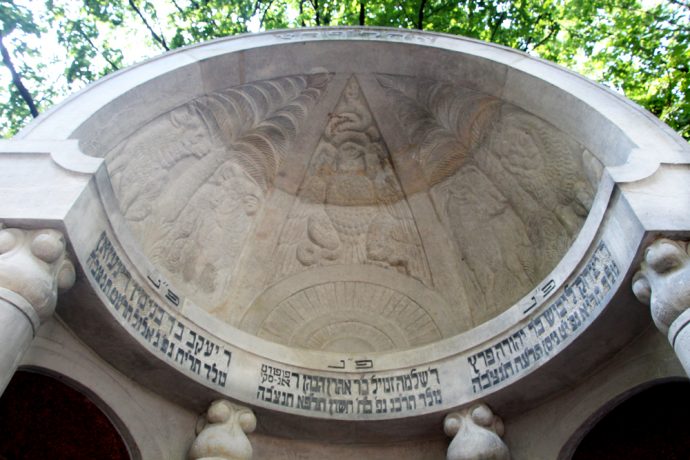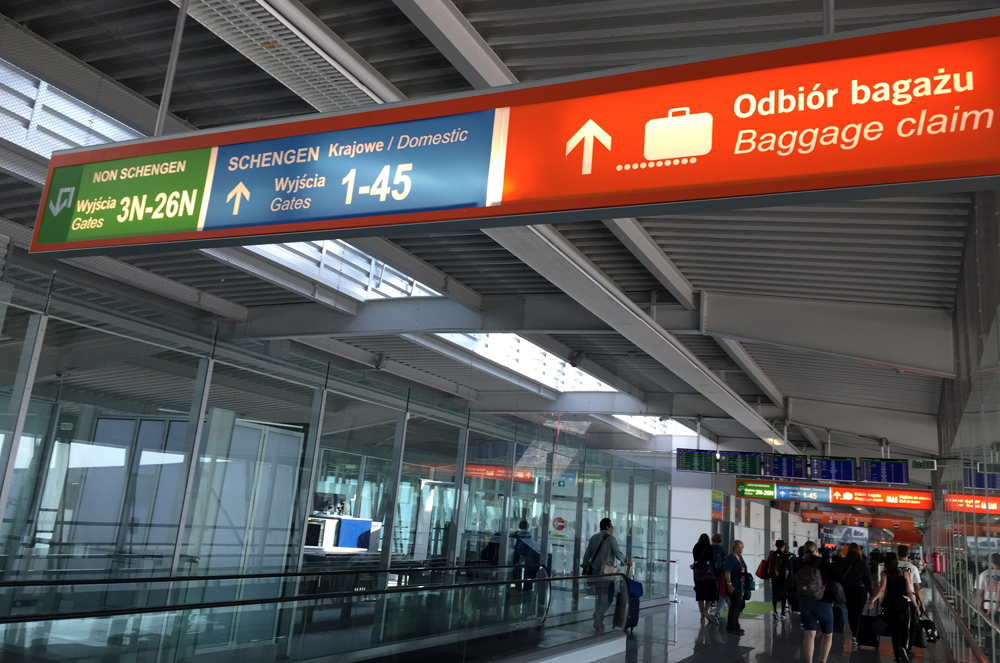
With all that’s been going on in 2020, it’s hard to believe that exactly one year ago, my sweet companion Carolyn Toben and I arrived at the Warsaw Chopin Airport. We had come to Poland to help commemorate the 100th anniversary of the death of an important Jewish writer named Jacob Dinezon.
The decision to visit Warsaw was not an easy one. Almost everything there when Dinezon was alive was destroyed by the Nazis during the Holocaust: the streets he walked, the apartment he lived in, the synagogue where he prayed. And, of course, the devastation of the Jewish population.
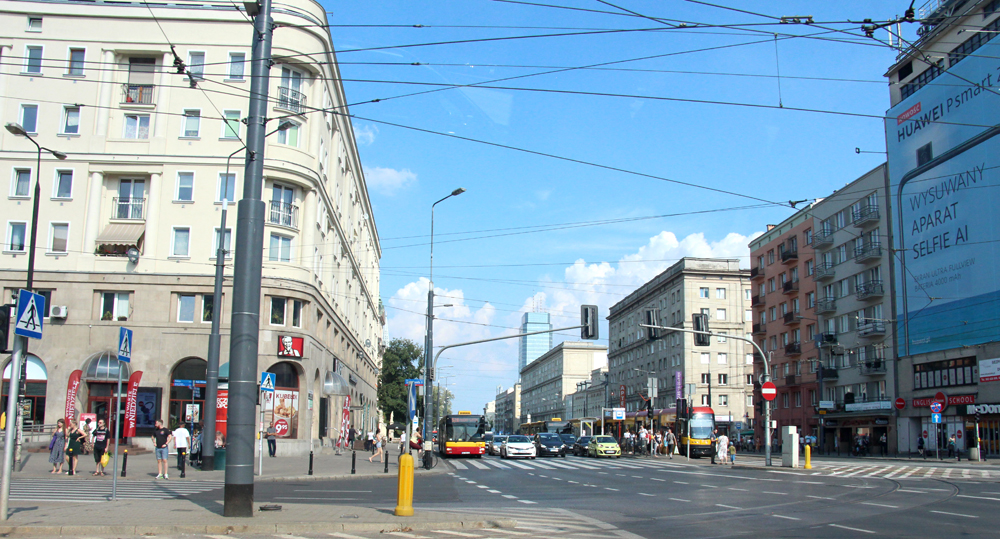
Even the Jewish cemetery, which miraculously survived, has changed. Where Dinezon’s headstone once stood, a grand mausoleum now stands dedicated not to Dinezon, but to his dearest friend and colleague, the author I. L. Peretz. Yet, somehow I knew we needed to be here. Dinezon’s spirit was calling.
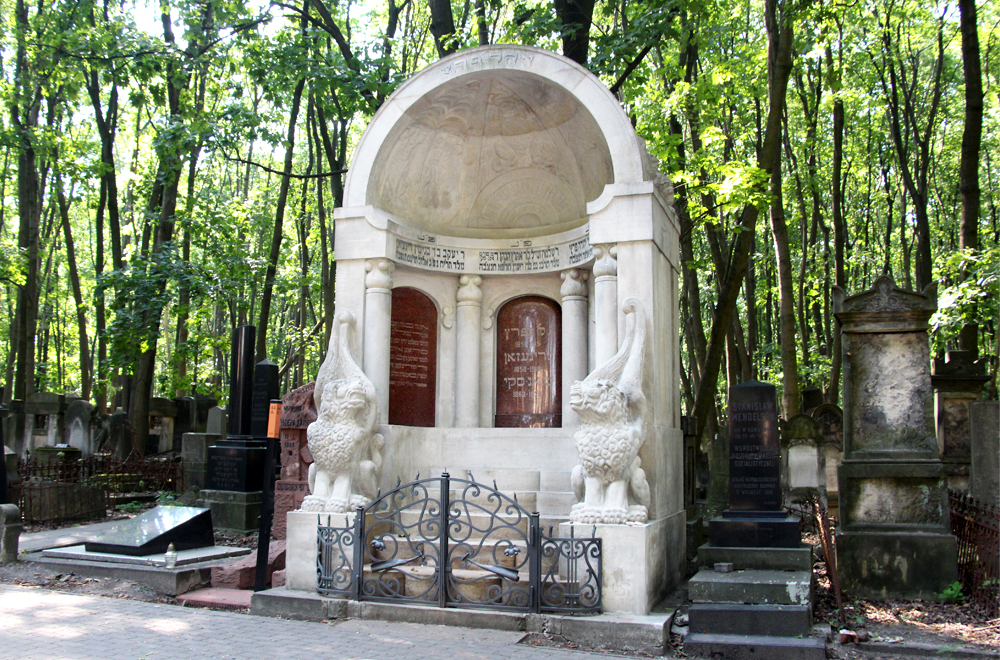
Day Two
On August 28, 2019, Carolyn and I were joined by my sister and brother-in-law, Robin and Jim Evans, who arrived in Warsaw the night before. For nearly twenty years, the four of us have been on “The Dinezon Express,” an effort to restore Jacob Dinezon’s literary legacy by commissioning and publishing English translations of his Yiddish novels and short stories. Over the years, we traveled together to give talks and even visit the Yiddish Book Center in Amherst, MA.
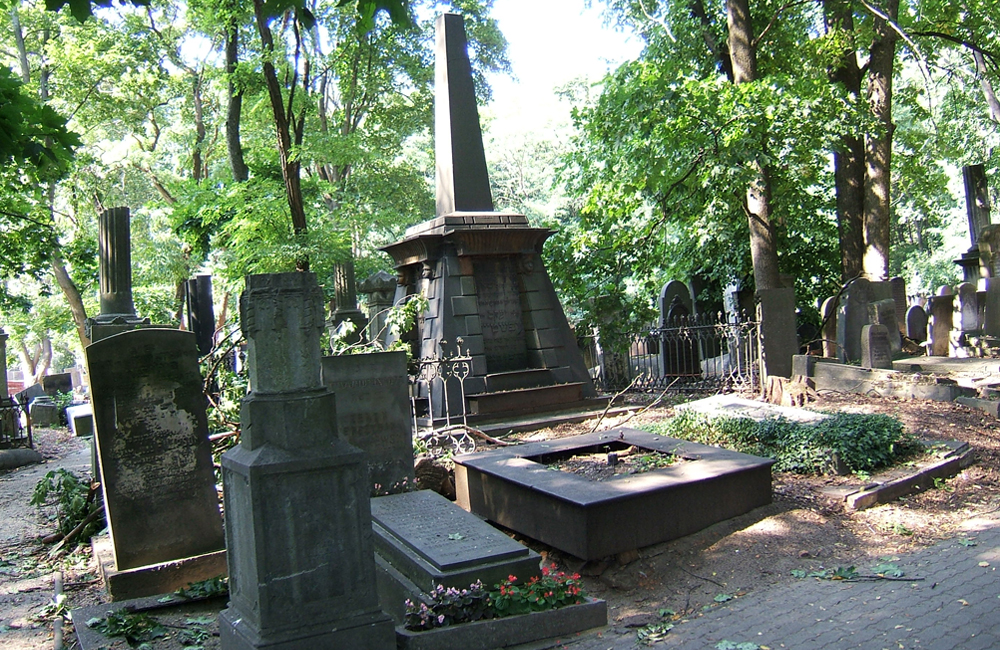
Today, we were stepping out of an Uber car in front of the Jewish Cemetery on Okopowa Street (pronounced Okopova). Dinezon had spent the last thirty years of his life in Warsaw, and his funeral, which attracted mourners in the tens of thousands, ended here on August 31st, two days after his death. We walked past centuries of old monuments and headstones, many toppled and leaning precariously until we came to the magnificent mausoleum where Dinezon is buried beside his two friends, the master short story writer, poet, and playwright, I. L. Peretz, and the ethnographer, poet, playwright, and novelist S. An-sky.
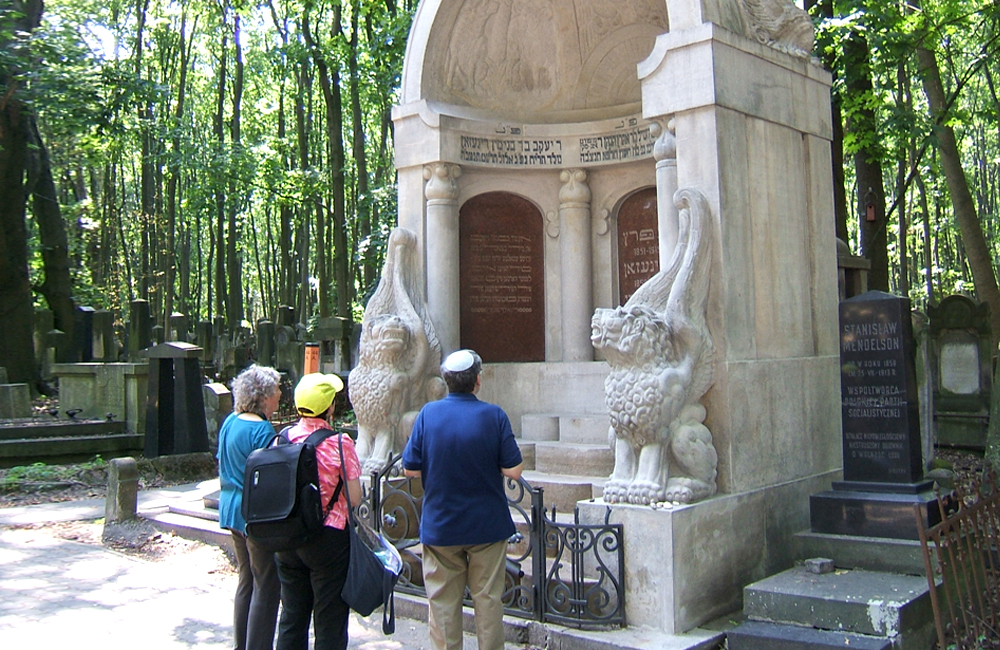
A low, wrought-iron fence and two stone-sculpted lions guard steps that lead up to a maroon marble tablet etched in Hebrew letters. Most people with an interest in Yiddish literature are familiar with the works of the authors Peretz and An-sky. But we were here to pay homage to J. Dinezon, the name in the middle. The kind, quiet, gentle, stubborn one who wrote The Dark Young Man, the first bestselling novel in Yiddish. Tomorrow was the 100th anniversary of his death.
Day Three
August 29, 2019, Warsaw Poland, the 100th anniversary of the death (on the secular calendar) of the renowned Jewish author Jacob Dinezon. According to the Yiddish newspaper, Haynt, on August 31st, the day of Dinezon’s funeral, the weather was dreary. The roads were muddy, and rain beat down as the funeral cortege made its way from Dinezon’s apartment to the cemetery on Okopowa Street. Mourners in the tens of thousands lined the streets, Jews of every ideology and faction who had been moved by Dinezon’s novels or touched by his efforts during the final years of his life caring for children orphaned during the First World War.
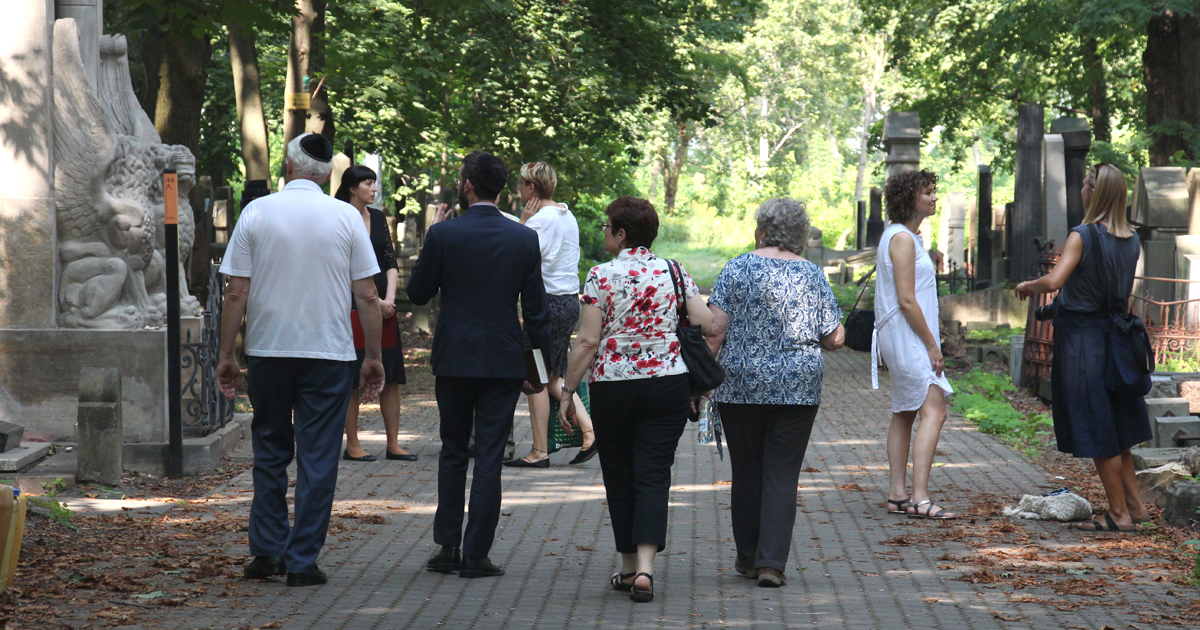
One hundred years later, as my family and I stood in that same Jewish cemetery, the day was warm and sunny. A small gathering of people, barely a dozen, stood before the mausoleum of the three writers where Dinezon is buried with his friends I. L. Peretz and S. An-sky. The commemorative service, sponsored by the Jewish Historical Institute of Warsaw and conducted by Yiddish scholar, Dr. Agnieszka Żółkiewska, described Dinezon’s life and literary accomplishments.
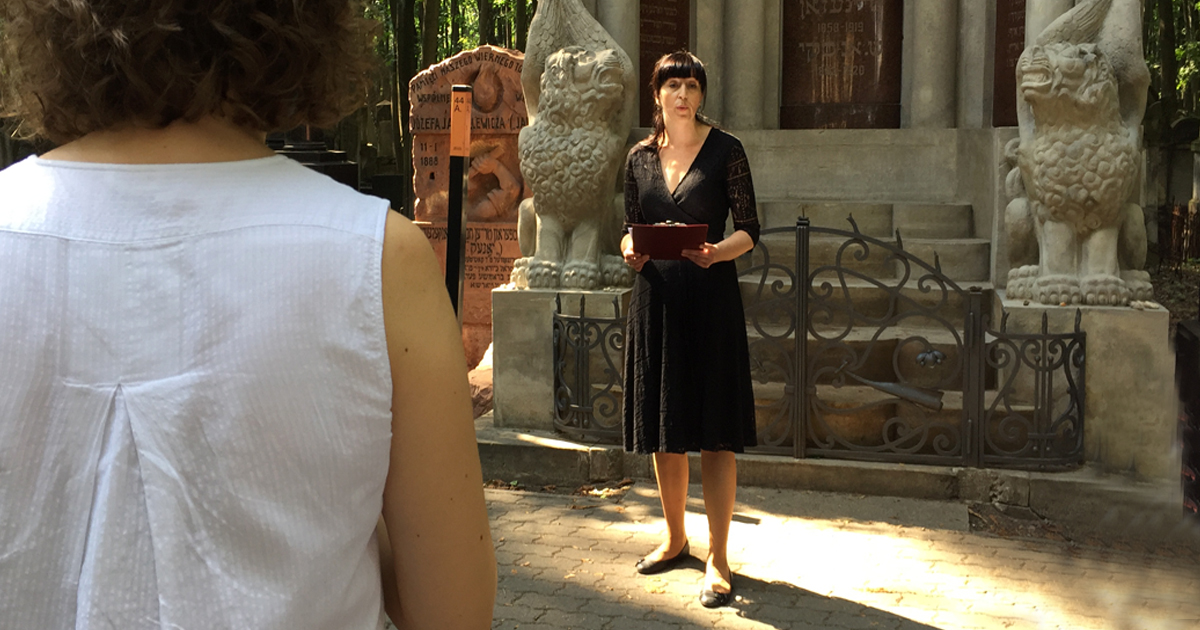
I spoke briefly about Dinezon’s contributions to Yiddish literature, an honor I will never forget. And a Rabbi, Yehoshua Ellis, originally from Kansas, who lives in Poland and heads a small congregation, closed the service with the reading of prayers and psalms.
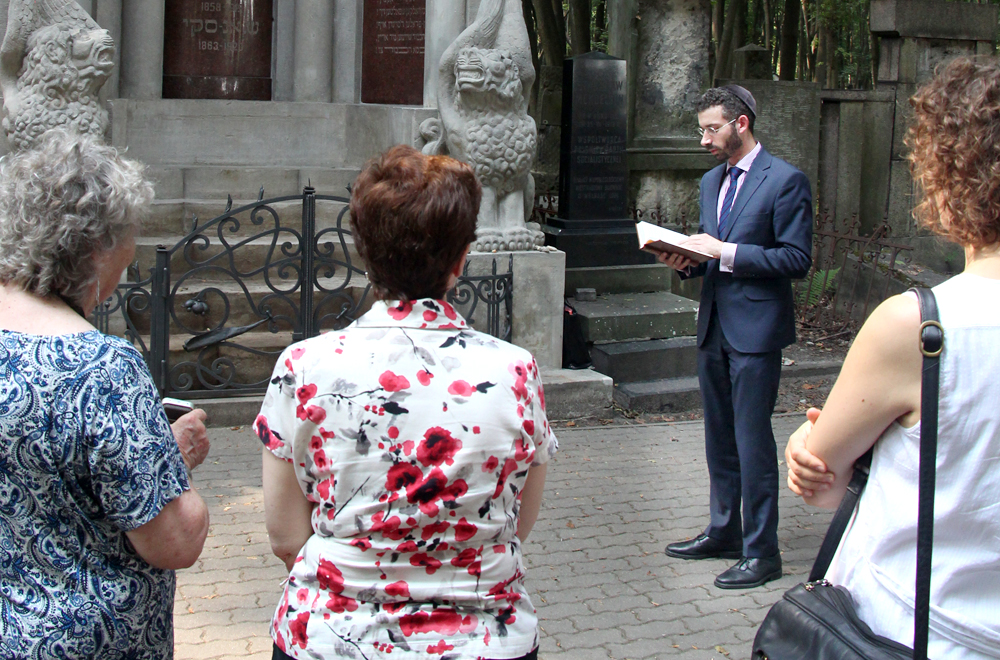
When it was over, I was surprised by my reaction. I had expected to somehow feel Dinezon’s presence in that cemetery. I thought that was why I had traveled all this way to Warsaw. Only later, would I realize that on that day, I was only there to bear witness. As far as I could tell, of the dozen or so who showed up to celebrate Dinezon’s yortsayt,, only three of us were Jewish—all from America—who understood in our souls that the creative, vibrant, living Jewish world in Warsaw during Dinezon’s lifetime was all gone. A world lost forever, never to be reclaimed except in memory and stories. So, where was I going to find Jacob Dinezon’s spirit? Who would’ve ever guessed in a Yiddish theater in New York City just a few days later. (Continued ⇨)
